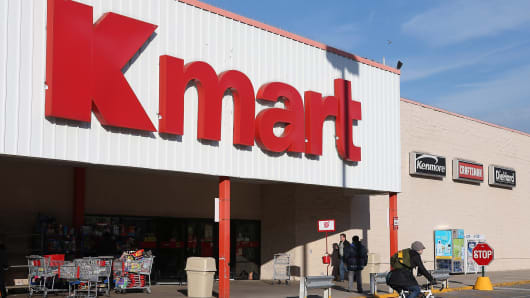Kmart's business won't succeed without consumer demand. The fact is, that consumers want things that they cannot afford and aren't willing to exercise financial discipline because, very much like Willy Wonka's Veruca Salt, they "want it now." So, the outrage here isn't that Kmart is willing to finance these purchases for low-income people; it's that low-income people who can't afford a flat screen television aren't willing to save until they can afford it to purchase it.
(Read more: Game on: Sony's PlayStation 4 is here)
My father was a union electrician who taught my sister and me financial discipline at an early age. We were told not to buy anything with debt unless it was a financing tool to get a return (for example, for an education that would pay far more than the cost of the education). I put myself through college and did use debt for that purpose. When I got my first job out of school as an investment banker, I had a very attractive salary — but I also had $40,000 in debt. So, a cardboard box with a sheet draped over it became my bedside nightstand and I didn't purchase a big screen television for more than two years — after I had paid off every penny of that $40,000 in debt.
Most people aren't taught discipline, or don't care to practice it, in our culture of entitlement and instant gratification. Instead of saving up for the television or buying one within their means, if someone is happy to pay more for it, that should be their choice. However, their desire to live beyond their means or to prioritize discretionary spending hardly makes them victims and we need to stop treating them as such.
(Read more: 10 must-have videogames this holiday season)
You could replace the entire CFPB (Consumer Financial Protection Bureau) by mailing every person in America the following three sentences on a piece of paper:
- If it sounds too good to be true, it is.
- Don't buy things you can't afford.
- If you don't understand it, don't sign it.
It's that simple. People should be able to follow those three principles and be personally accountable when they don't.
Moreover, people should be allowed to do what they want with their money. They can buy silly products and services and if they want to use their money to pay finance charges to generate ROE (Return on Ego) or instant gratification instead of a return on investment, let them. Regardless of income, people should be able to make their own decisions and be accountable for them. Hopefully that will lead to better decision-making; but if not, it's on them.
A company can't make money without consumers who want what that company is offering. When consumers are greedy, don't be angry with the entity who decided to fulfill that greed-driven opportunity.
(Read more: Forget Thanksgiving. Let's shop!)
— By Carol Roth
Carol Roth is a CNBC contributor, a "recovering" investment banker and author of "The Entrepreneur Equation." Follow her on Twitter @CarolJSRoth.


